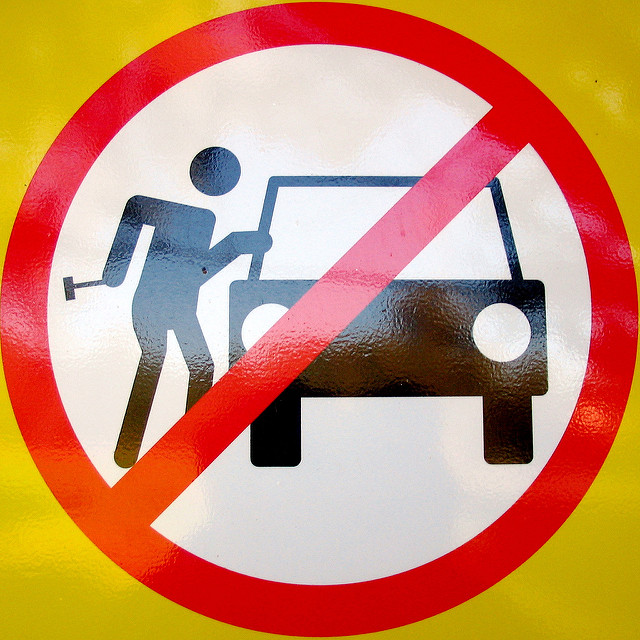On Monday, two carjacking suspects were arrested in Castaic by deputies working out of the Santa Clarita Sheriff Station. The car, a white Honda Civic, had license plates matching those of a car reported stolen. The car was parked at a Carl’s Jr. restaurant when deputies ran the plates. When the deputy called in that he had located the missing vehicle, he was notified that the suspects were armed. The deputy then called in for assistance to clear the area of any bystanders. The arrest was uneventful, with no shots on either side being fired.
Incidentally, the deputies weren’t in the area looking for the stolen vehicle. Instead, they had received a report of a panting dog in a locked car and had traveled to the parking lot to investigate.
Carjacking is covered under California Penal Code 215 PC and is described as taking a vehicle from someone’s immediate possession using force or fear, and intending to permanently or temporarily deprive the owner possession of the vehicle. Carjacking is a similar crime to grand theft auto (487 PC), and are often used interchangeably by the general public. However, they are actually two different crimes that encompass two separate scenarios.
First, grand theft auto does not need to include the use of force or fear during the taking of the vehicle. For example, if a person steals a car in the middle of the night without the owner’s knowledge, it could be grand theft auto. If, in that same scenario, the owner of the car came outside and the thief then threatened the owner, it could be carjacking.
The second difference between the two crimes is that in grand theft auto, the car thief needs to intend to deprive the person of the vehicle permanently. If they only intended to “borrow without asking,” it could be considered joyriding. For carjacking charges to be pressed, the person can take the vehicle using force or fear for any amount of time, whether permanent or temporary.
Carjacking is a felony, and the possible punishments include up to 1 year in county jail and probation, or up to 9 years in California state prison and a fine of up to $10,000.
